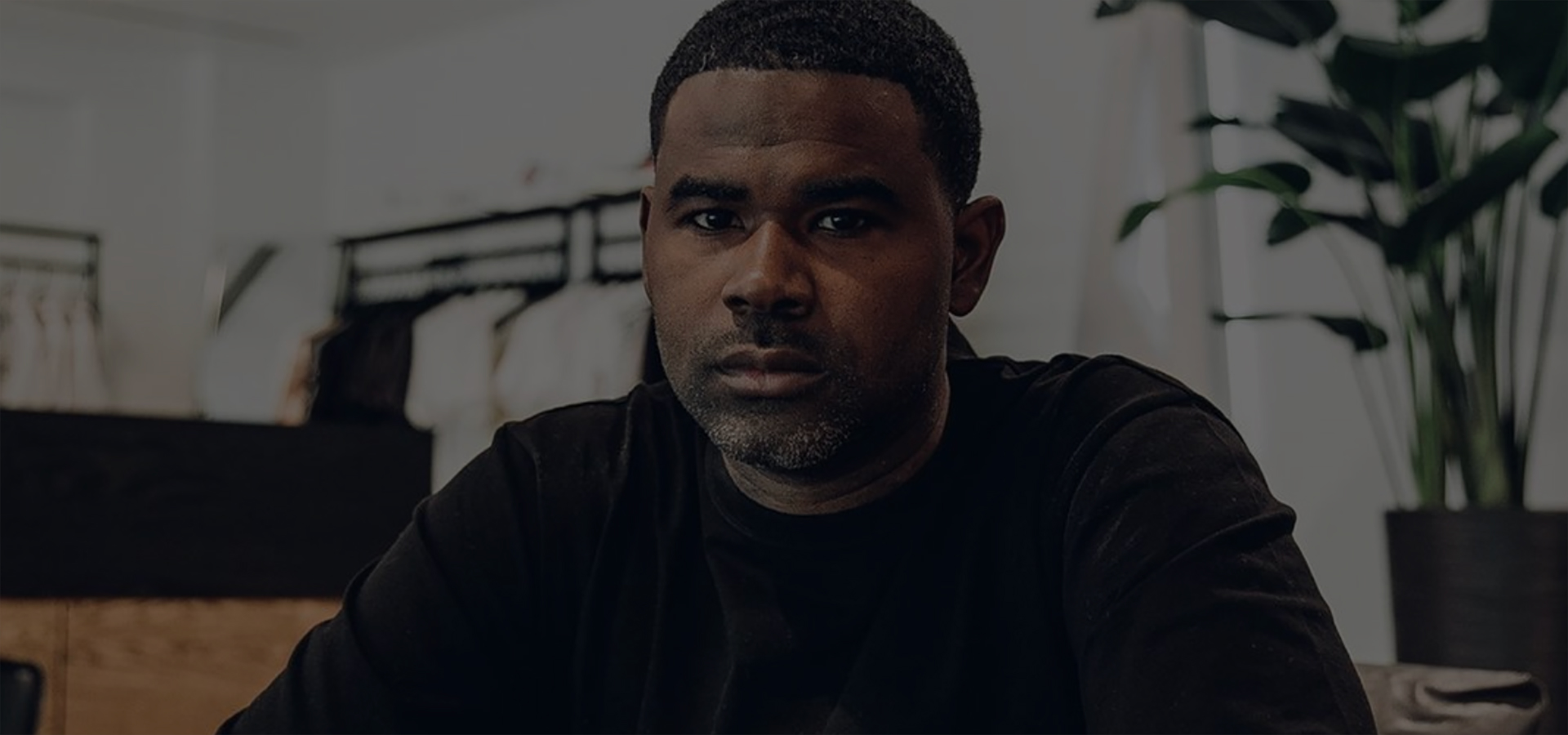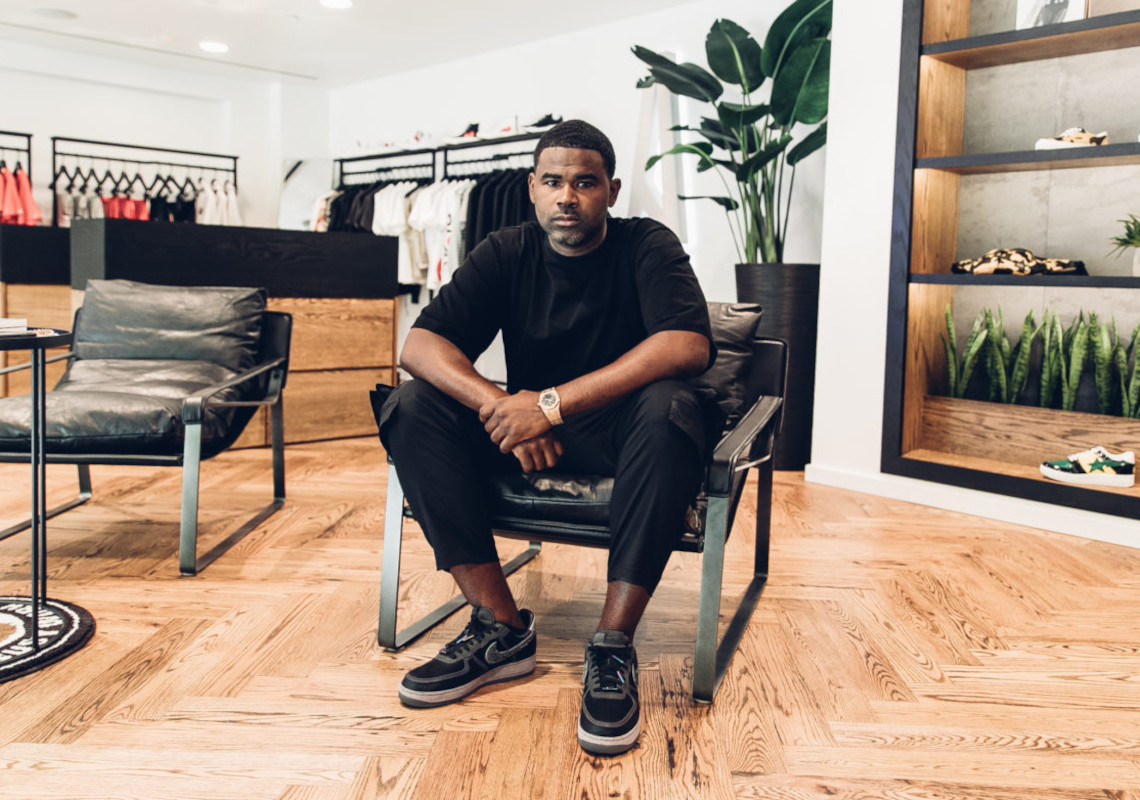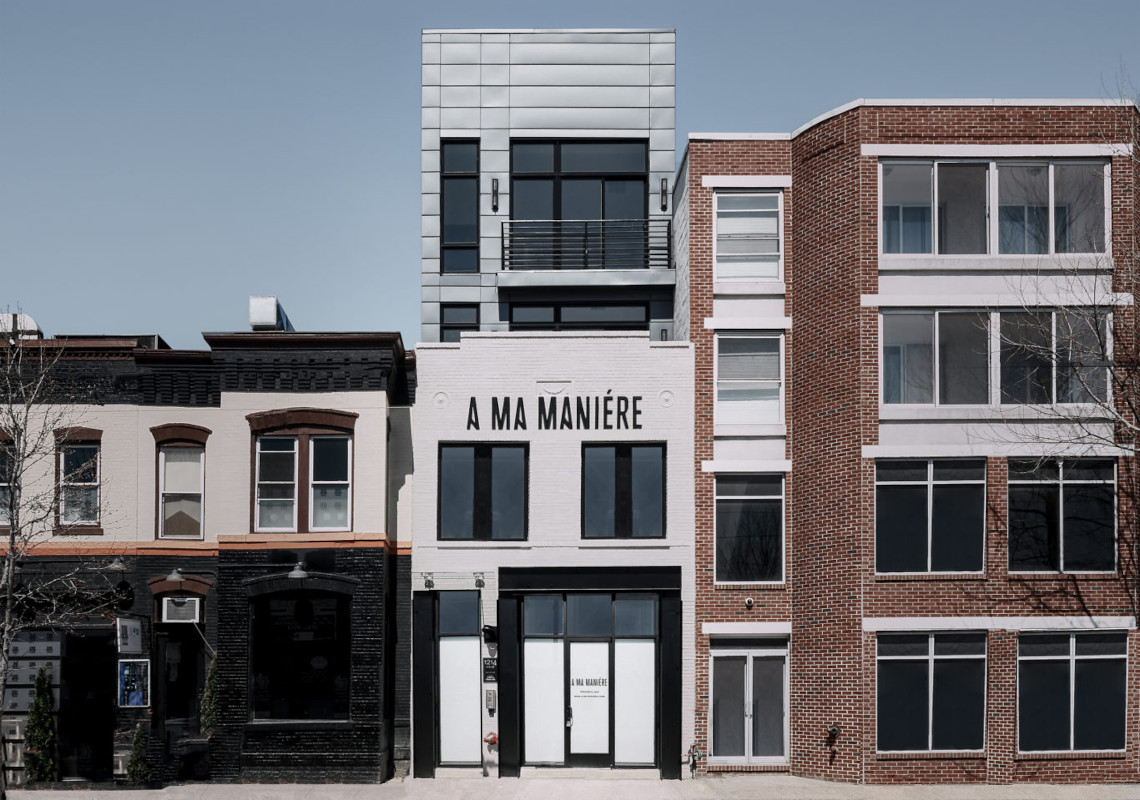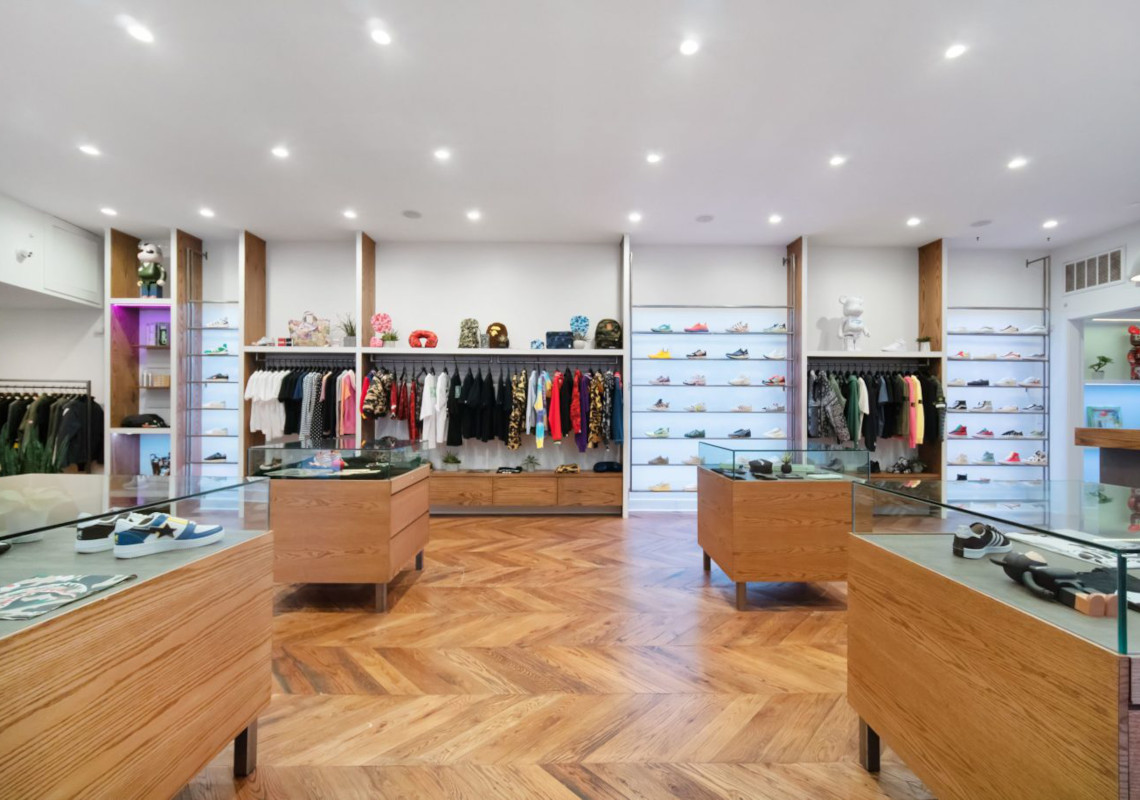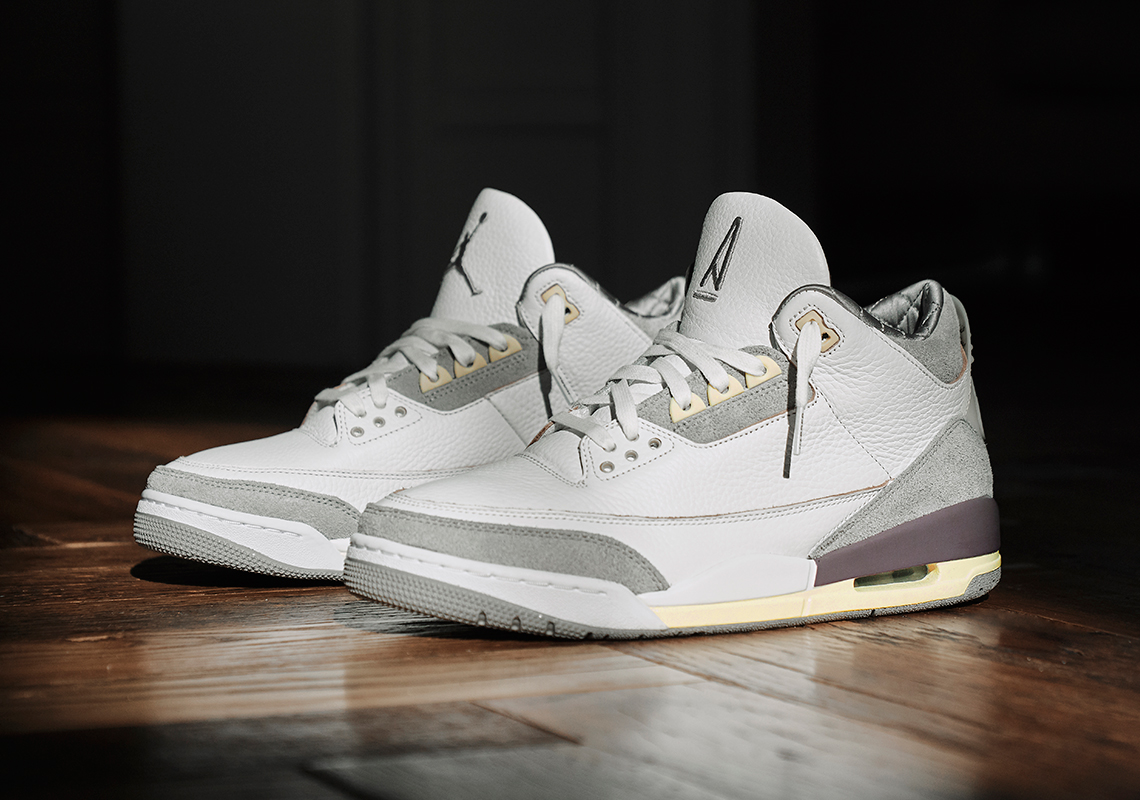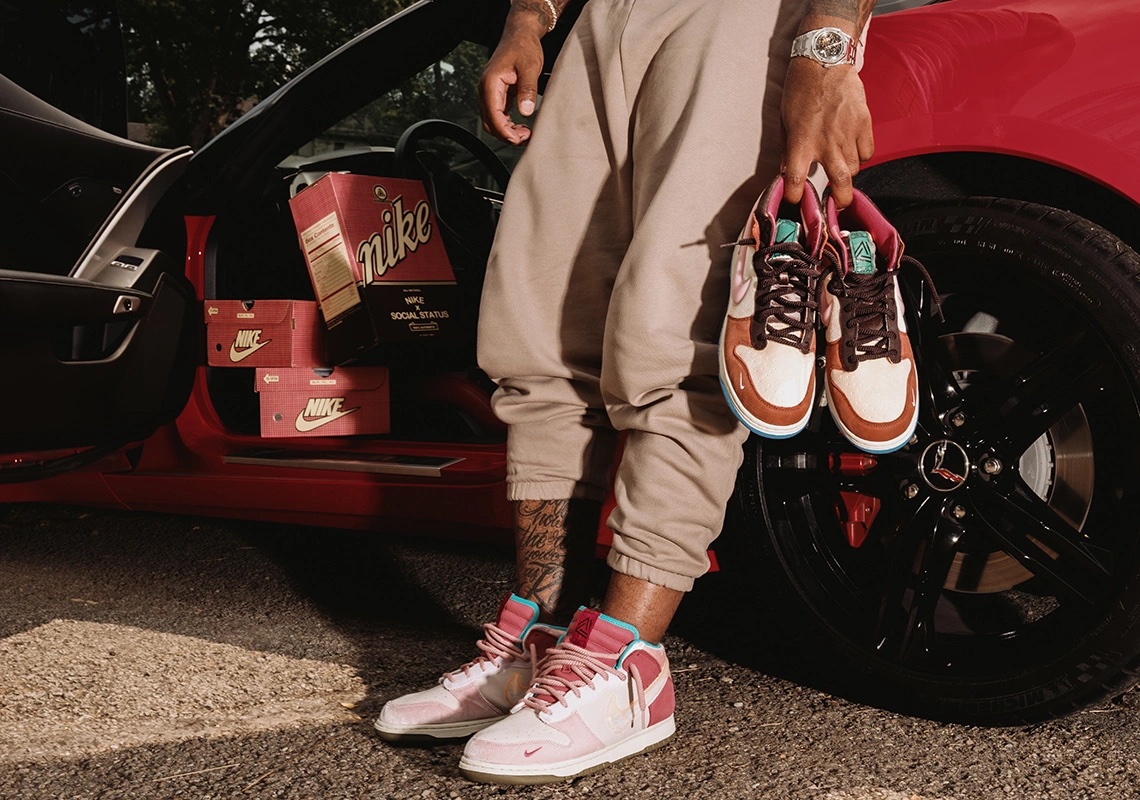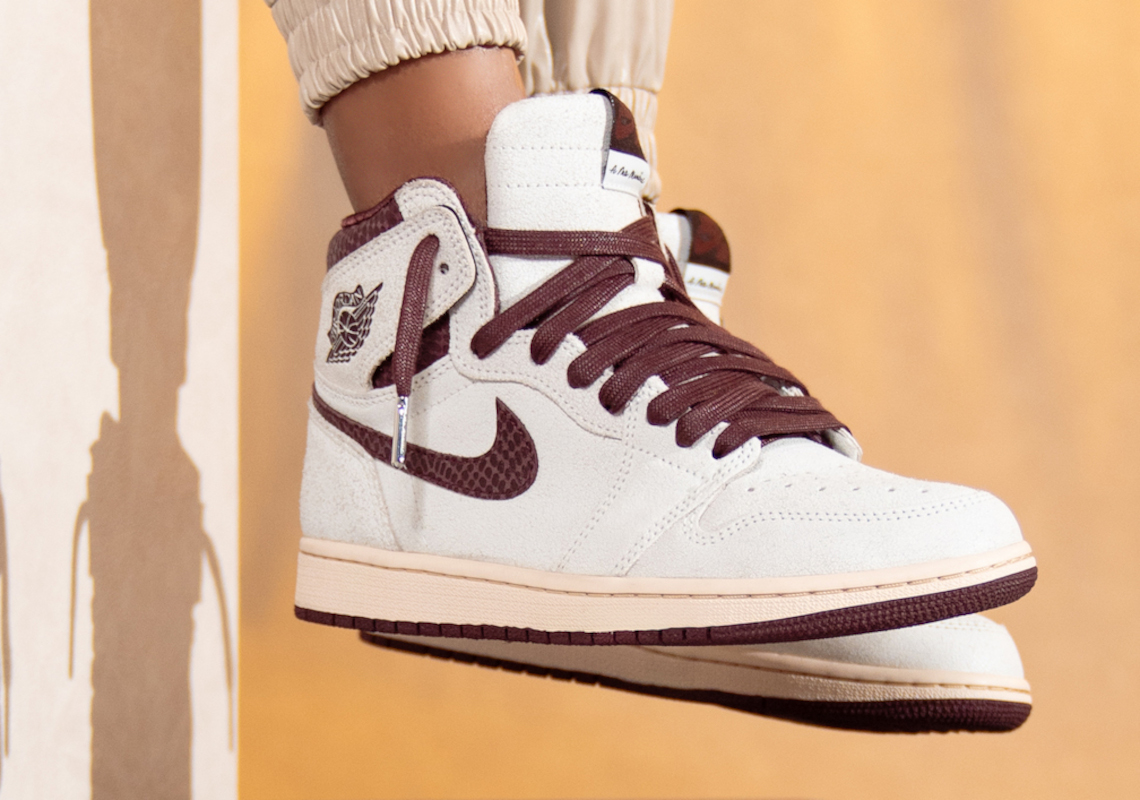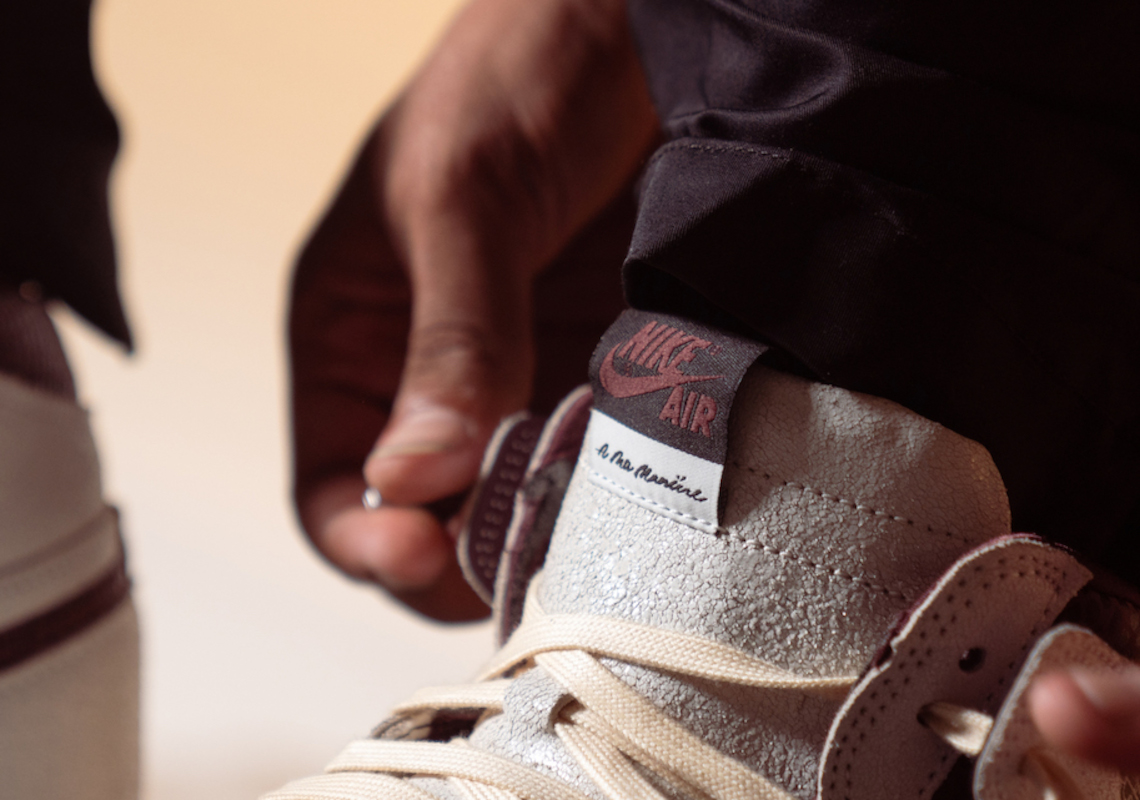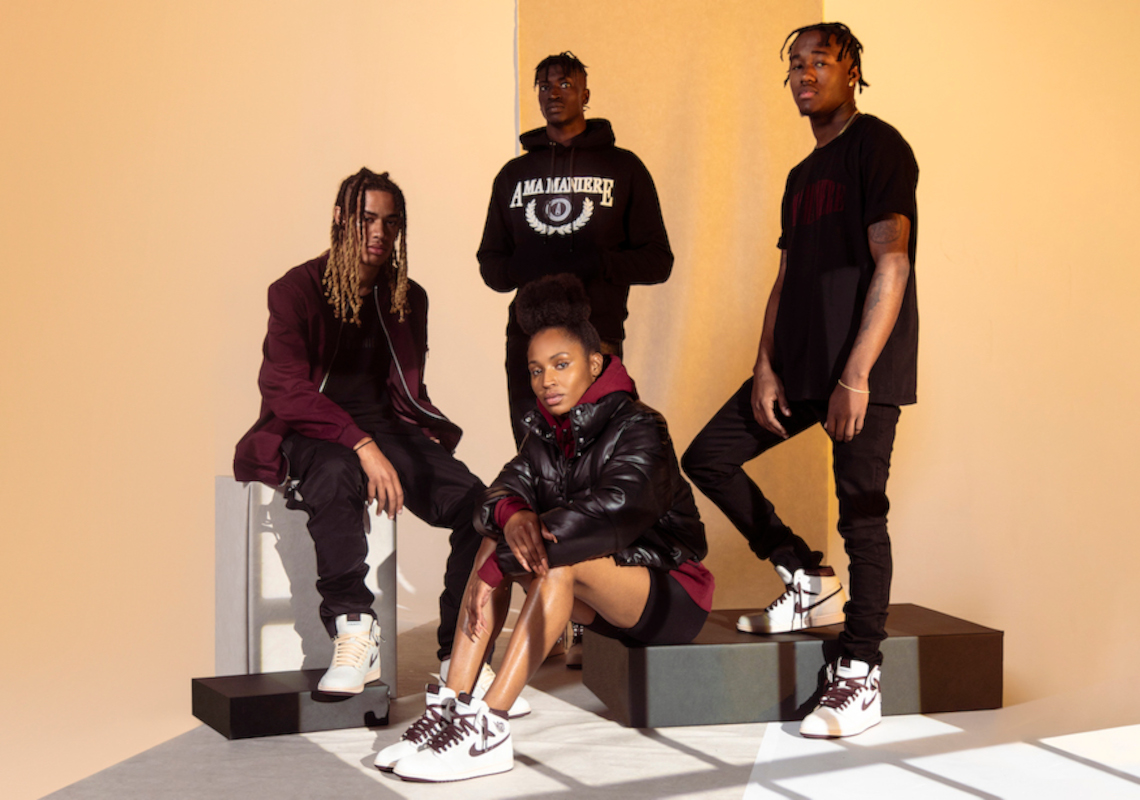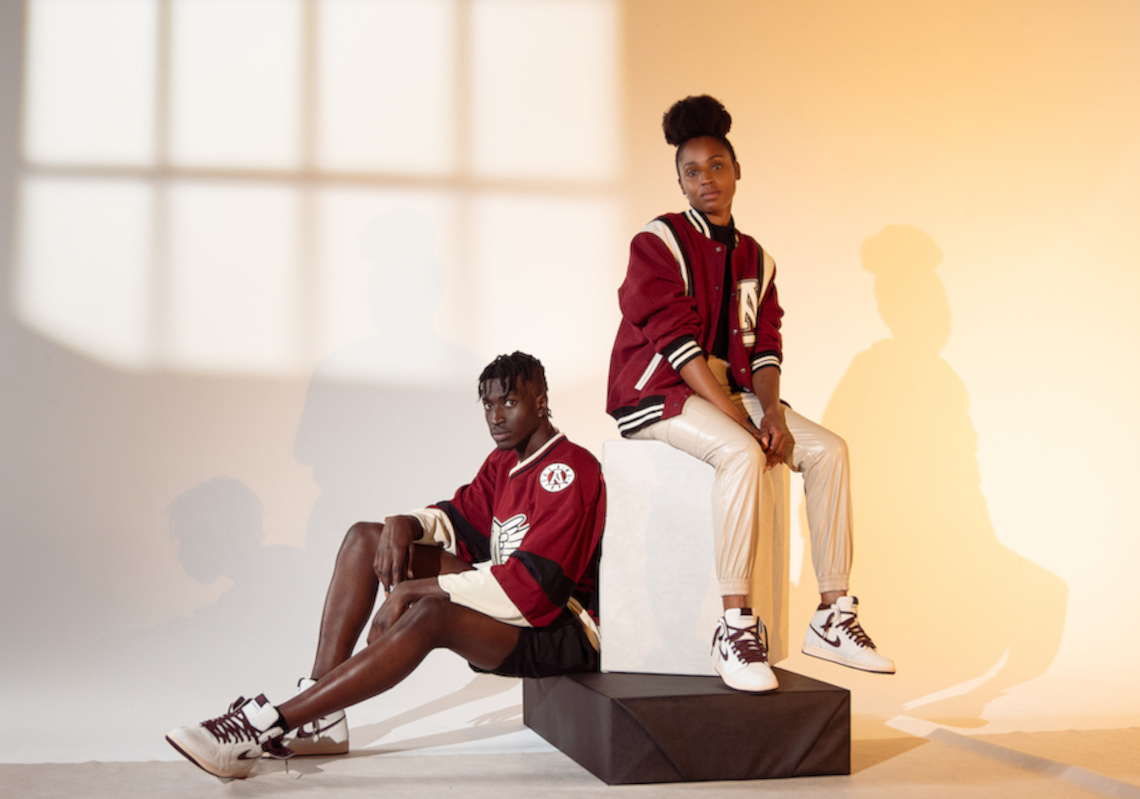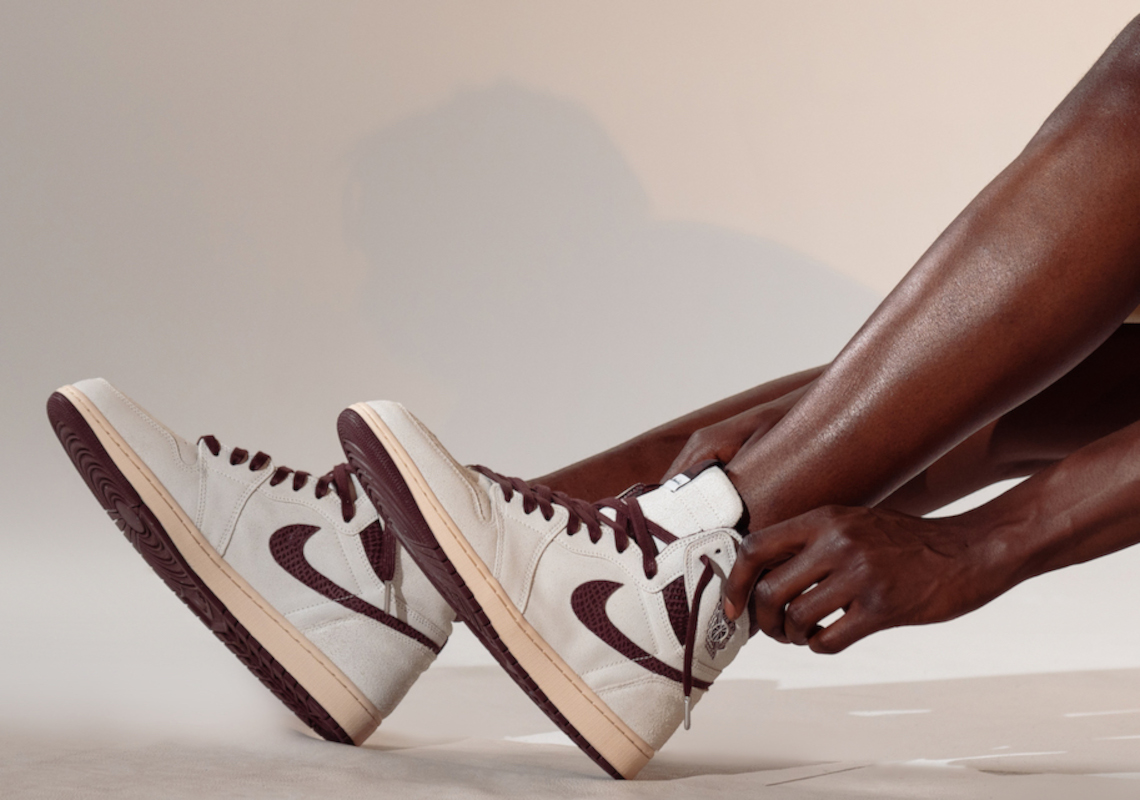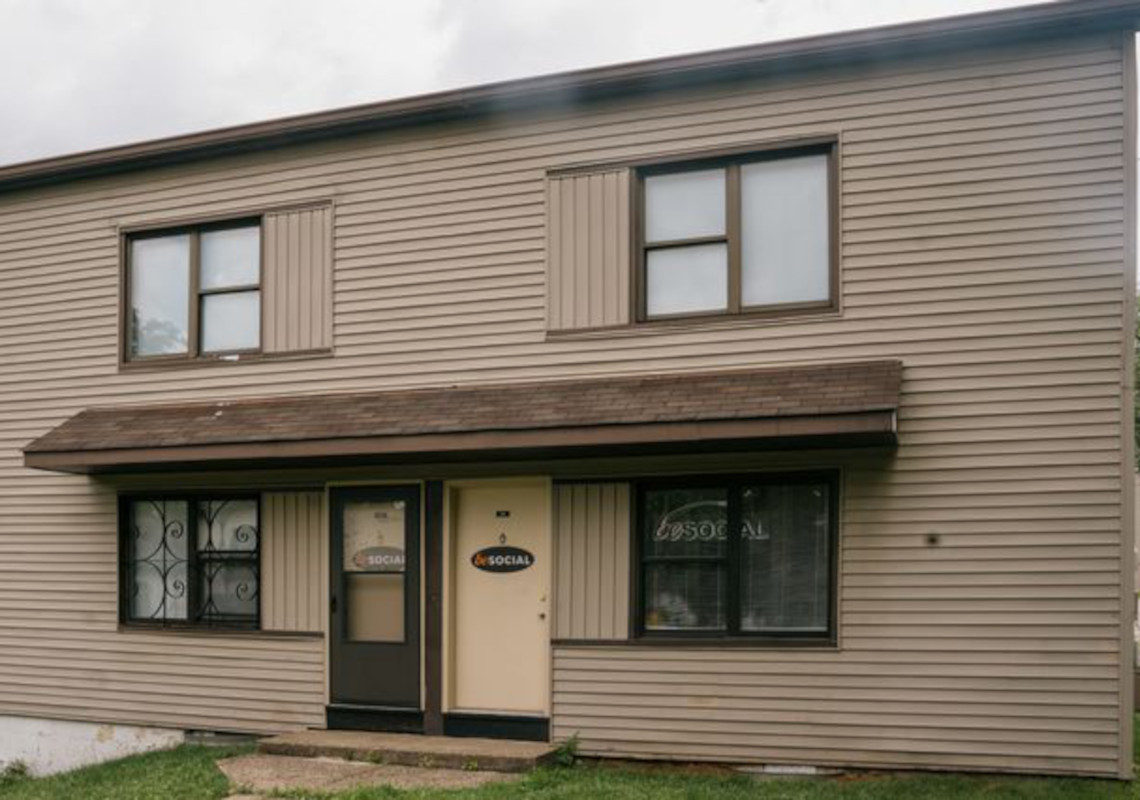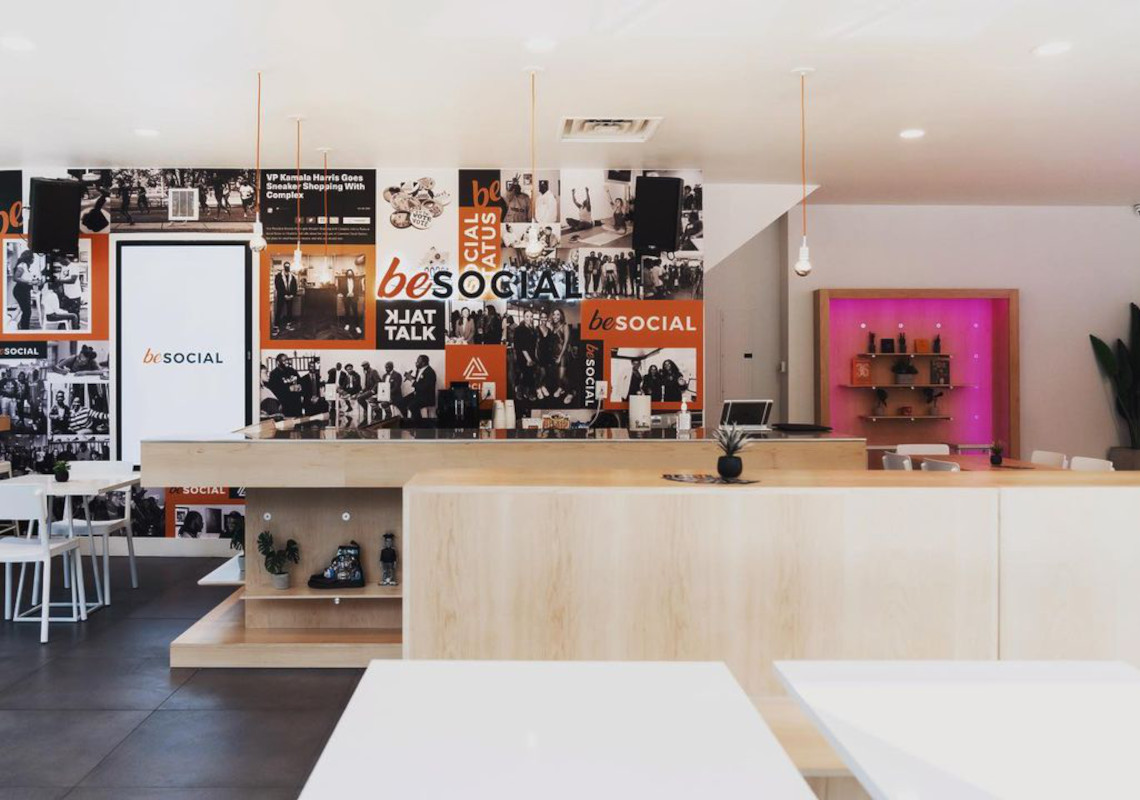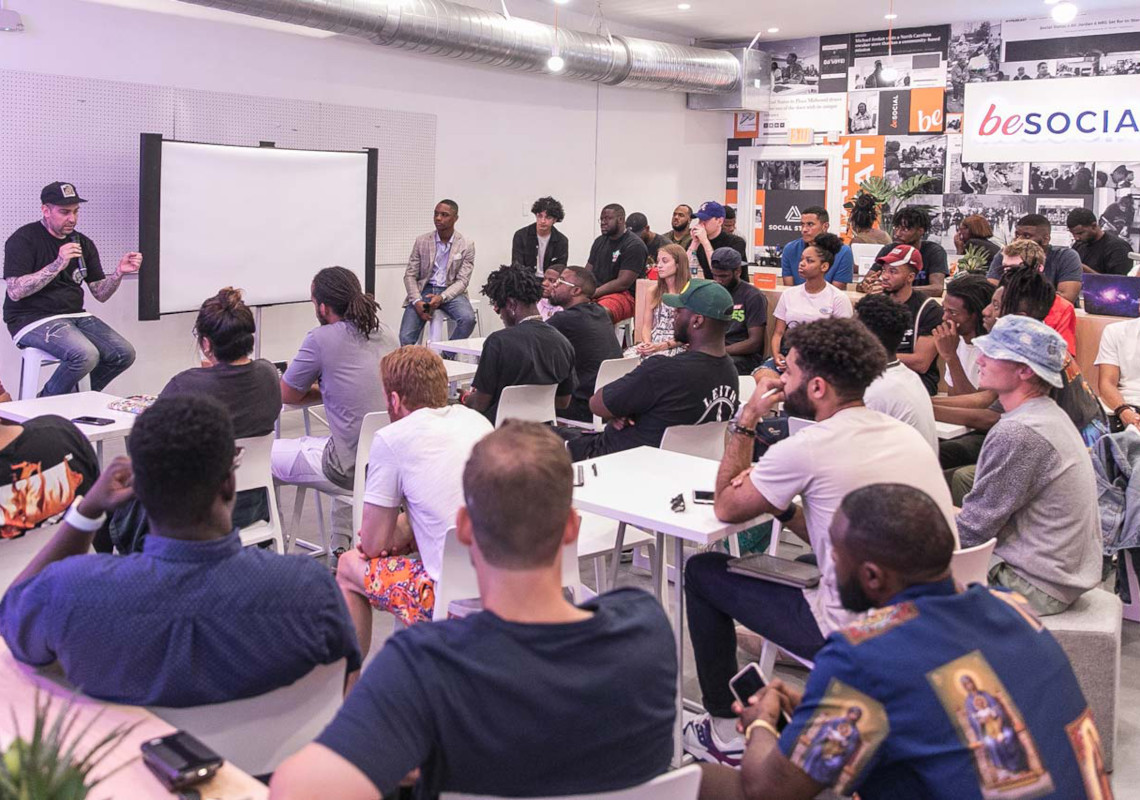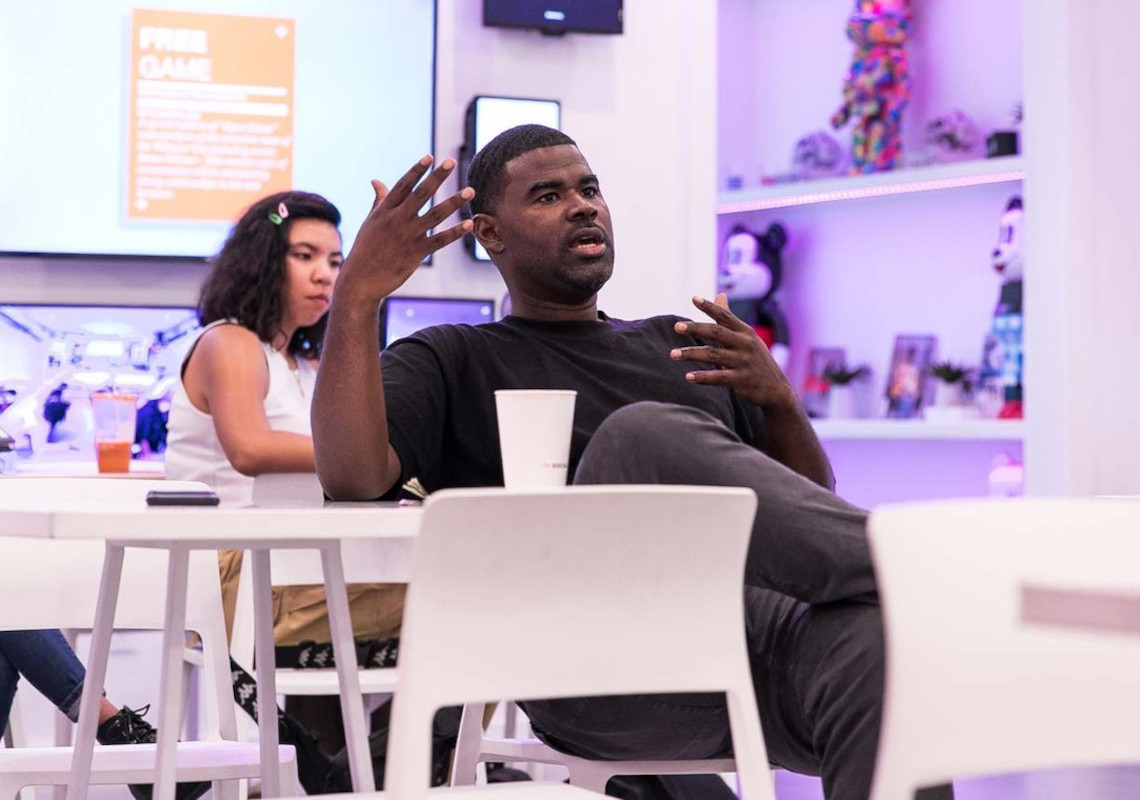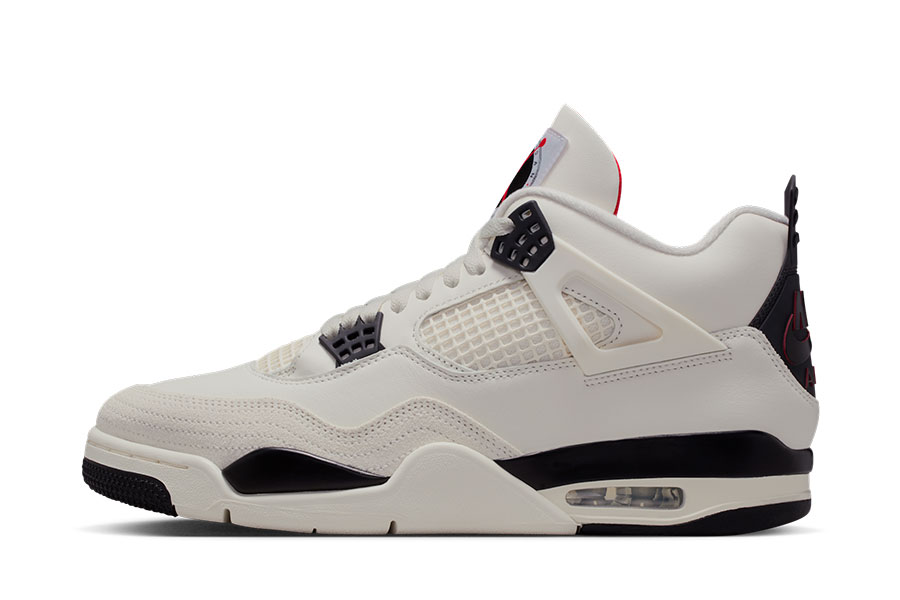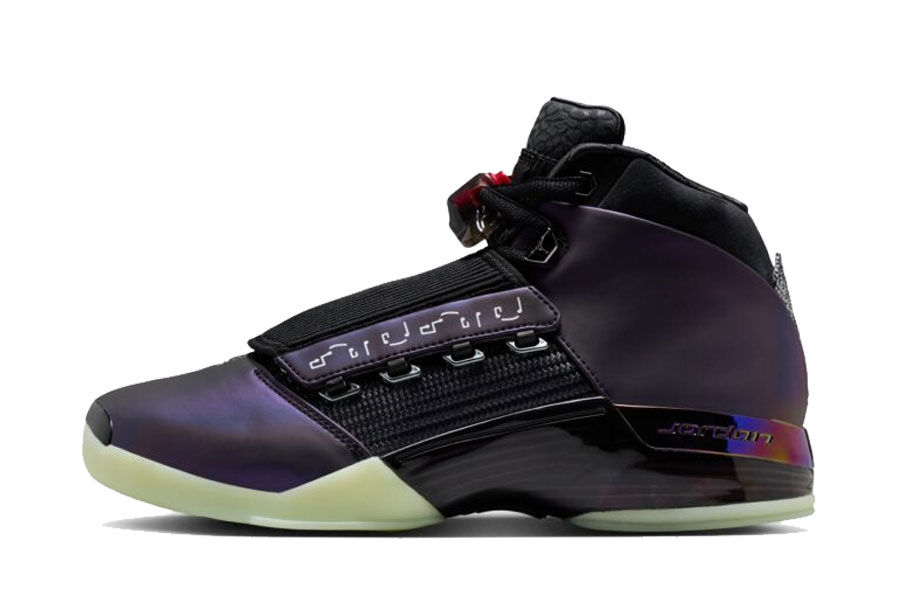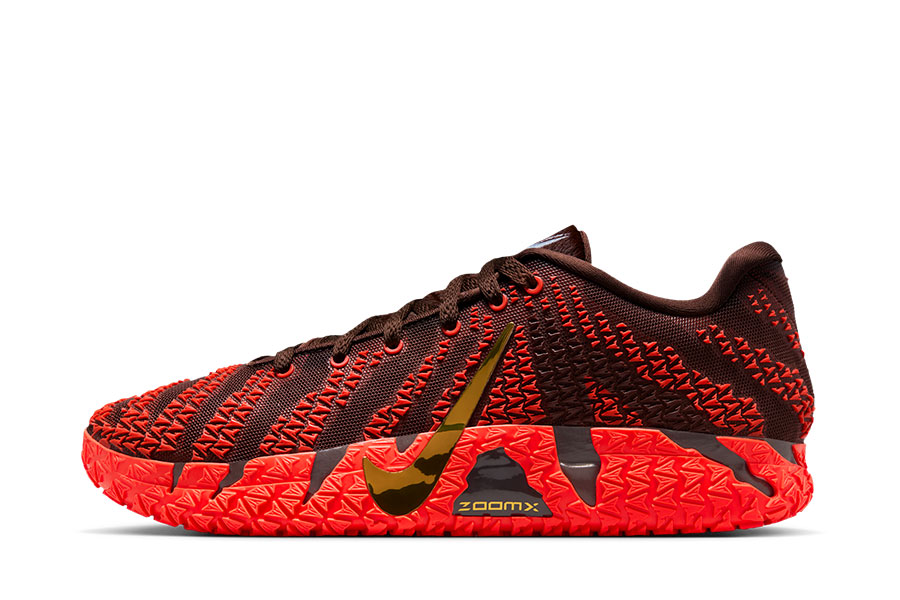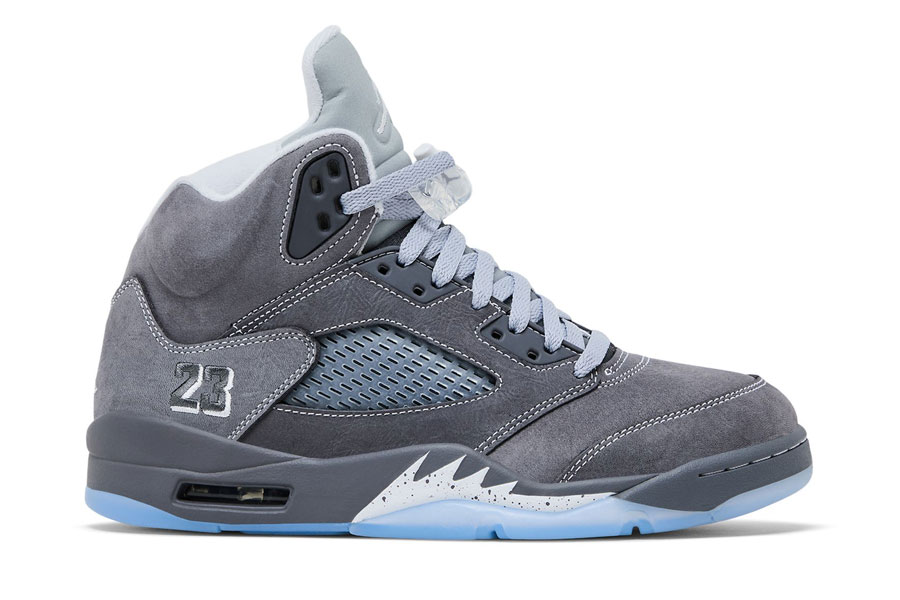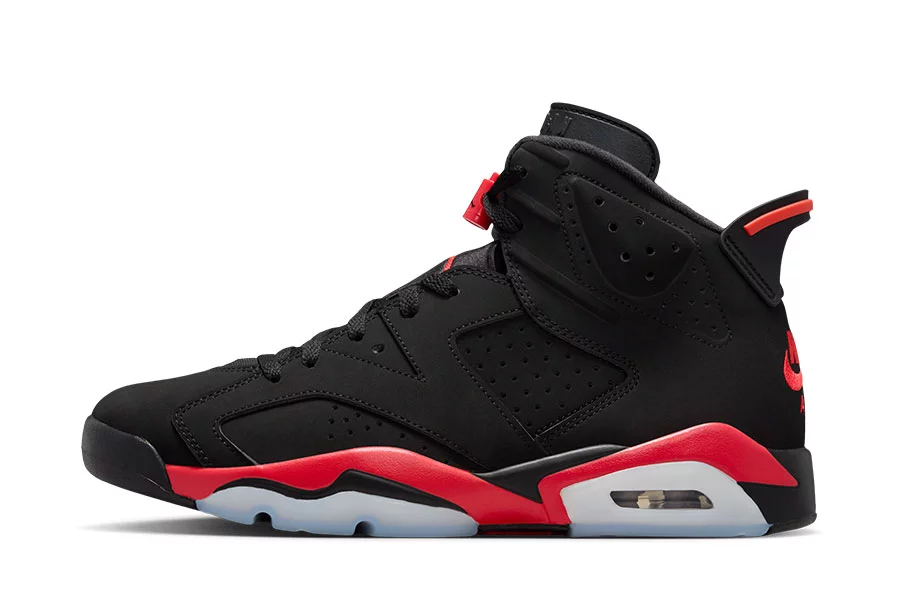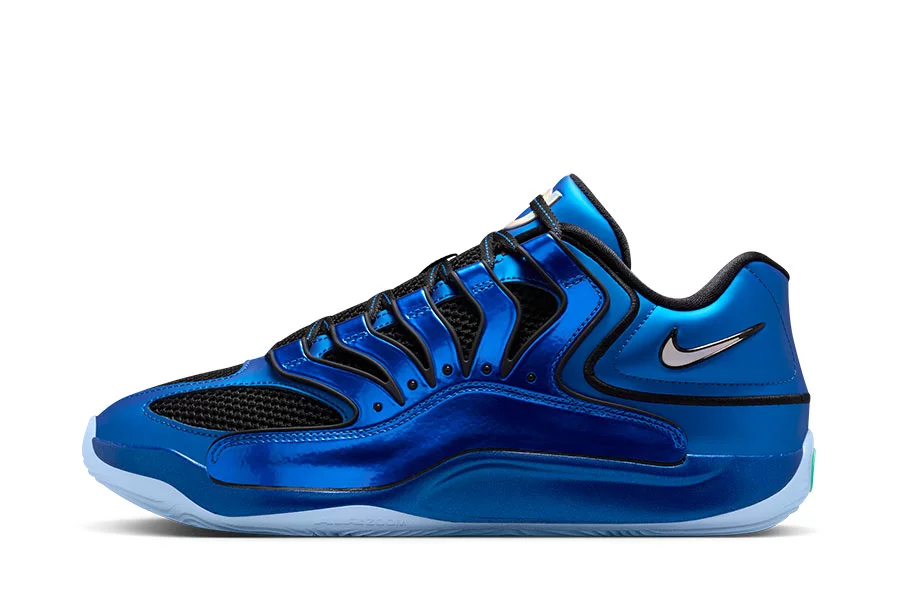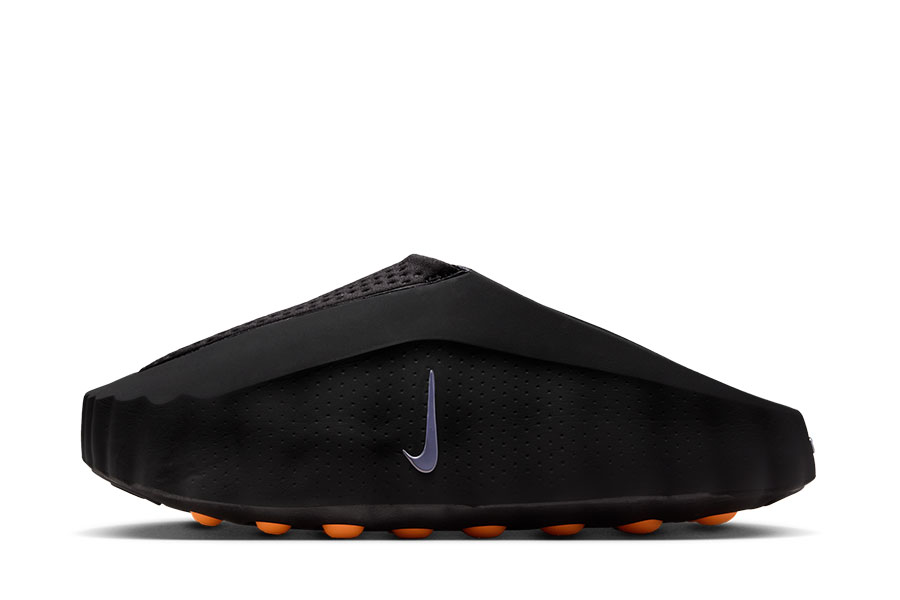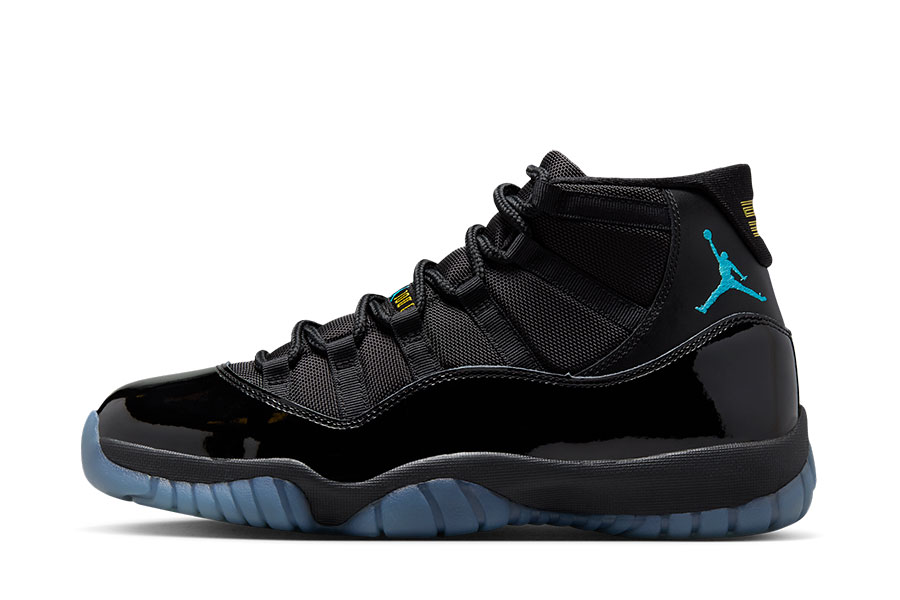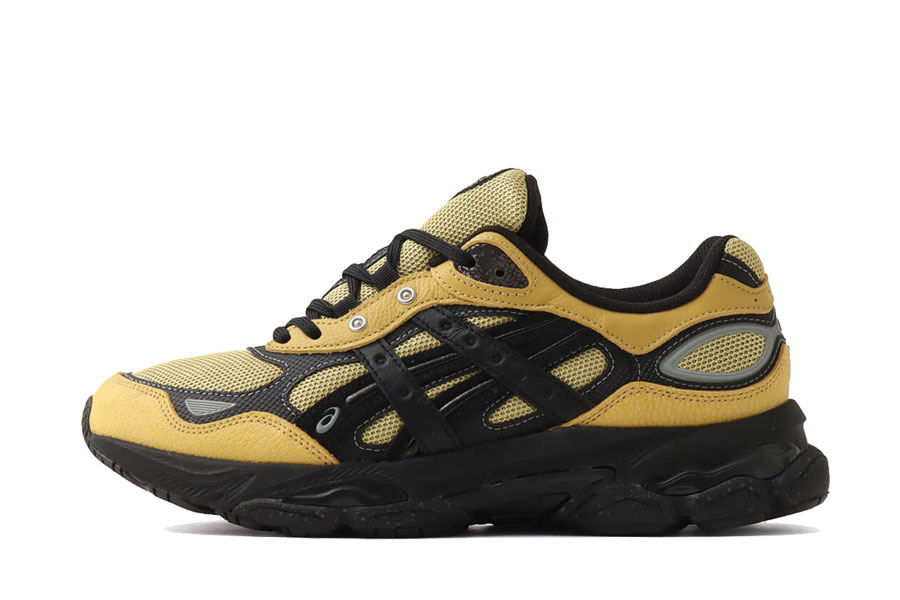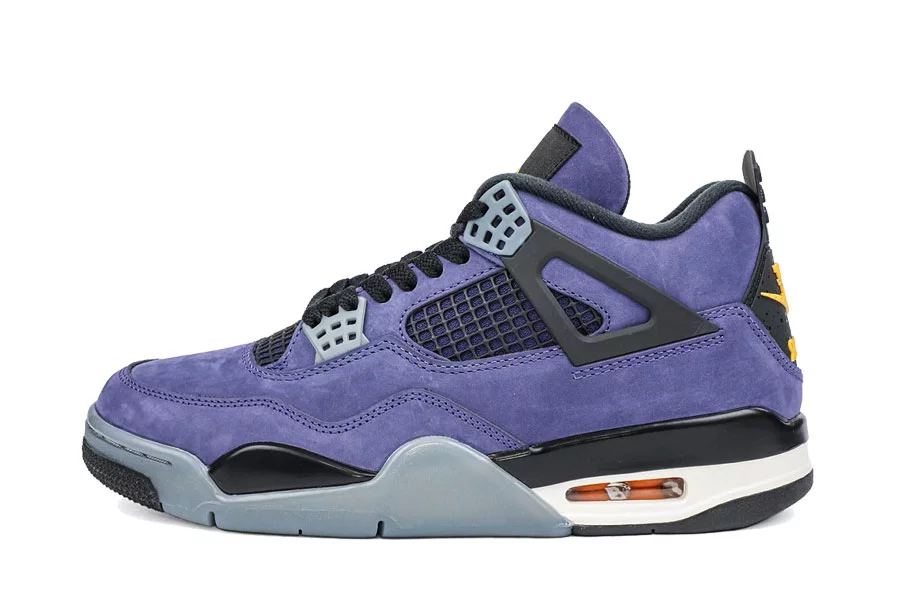
James Whitner isn’t supposed to be here; many of those closest to him while growing up in Pittsburgh during the 1990s and early aughts aren’t. At 42-years-old, he acknowledges where he is and what he’s accomplished, but isn’t patting himself on the back just yet. “I do understand the work that we do is important,” he says during a conversation through Zoom on November 18th. “But yo, I can’t…the second I start to celebrate ‘now,’ where are we really?”
In a landscape laden with self-serving creatives, Whitner’s stance is refreshing – more so when considering his résumé.
Founder and owner of The Whitaker Group, a conglomerate named after the southeast borough of Pittsburgh in which he grew up, Whitner employs well over 100 designers, merchandisers, sales representatives and more across 17 retail doors. The group’s brands – Social Status, A Ma Maniére, A.P.B., Prosper – service 13 cities in total, including Atlanta, Houston and Charlotte, North Carolina where he currently lives. In 2021, Whitner and team have released collaborations with NIKE, Inc., and are fresh off launching their second joint-effort with Jordan Brand: the Air Jordan 1 “Airness.” To many, the preceding Air Jordan 3 “Raised By Women” and Social Status “Free Lunch” Dunks have served as introductions to them, but Whitner and his extended family have been offering their perspective on the world for 16 years.
Whitner’s first foray into retail was Flava Factory, a storefront he opened in Charlotte in 2005. As he tells it, the business plan was written on a typewriter while in jail. He’s returned home, but the decision took some consideration. “Not much has changed,” Whitner says when comparing the world he occupied as a 25-year-old to the one that exists today. “Actually, things is getting worse – Young Dolph got killed buying cookies yesterday.” Whitner’s initial relocation to North Carolina followed a hospitalization he endured after being shot in the legs in 2004. The 20-something-year-old had transitioned into real estate, but he hadn’t divorced his environment or friends – many of them from the Mon-View Heights projects. One of them, however, held him accountable about being “done” with the streets following the trip to the hospital; the late-D.C.’s words to Whitner have been immortalized within all three current A Ma Maniére locations.
It ain’t gotta be about the dollar, it’s about doing the work.
Whitner when speaking about serving the community
The Whitaker Group’s high-end banner, A Ma Maniére – which translates from French to “My Way” – opened in 2014. In addition to carrying the silk scarves by Casablanca, sweatpants from Acne Studios and other luxury items Whitner himself has begun seeking as he’s matured, the brand has served as a platform to spotlight matters disproportionately affecting the Black community. In Washington D.C., where the boutique also houses an upscale hotel, A Ma Maniére has tapped in with local organizations to address child homelessness; A Ma Maniére EATS launched in the Houston store, and a relationship developed with a nearby food bank. “It ain’t gotta be about the dollar, it’s about doing the work,” Whitner expresses when asked about the communities The Whitaker Group serves. “It’s about getting maximum impact.”
In addition to ensuring residents of Raleigh, N.C., Tampa and other historically overlooked and underserved cities have access to the freshest gear, Whitner and team are addressing the knowledge and technology gaps they experience.
Ain’t nothing wrong with being motivated by product…as long as there’s positive action associated with it.
Whitner on the consumer balance
Birthed from a conversation between Whitner and Kevin Chao, one of the conglomerate’s retail planners, the beSOCIAL community platform has enabled a number of initiatives – including A.P.B. YOU and Hand Wash Cold. FREE GAME, a monthly panel discussion, has hosted journalists, financial literacy advisors and other members of the community-at-large to share lessons they’ve learned in their personal and professional development. beSOCIAL outposts are located in four of the 13 cities The Whitaker Group serve, with Whitner establishing one in the West Mifflin-located projects he grew up in. The group’s literal and figurative retail presence, then, extends beyond any hype sneaker on display on a shelf. But the Pittsburgh-native understands the importance of product outside and within the context of his and his colleagues’ fight to address Black plight: “Remember this,” he says, calmly. “You can’t expect to get your kid excited all the time by talking to him about broccoli – sometimes it’s gotta be about chocolate chip cookies, brownies and cake because that’s what they’re gonna respond to. Ain’t nothing wrong with being motivated by product…as long as there’s positive action [the broccoli] associated with it.” A Ma Maniére’s two Air Jordan collaborations have struck the perfect balance between “sugars” and “veggies.”
Clad in “Sail” and “Burgundy Crush,” the brand’s Air Jordan 1 captures A Ma Maniére’s “classic, timeless and luxurious” design ethos perfectly. Constructed with premium materials and a keen attention to detail, the retro features a textured, cracked leather across most of its upper. Dark red contrast enters the mix at the collar panels, inner-lining and NIKE, Inc. branding. Akin to the Air Jordan 3 that released in June, The Whitaker Group’s latest footwear project sits atop an “aged” sole unit. Naturally, many netizens have compared the upcoming drop to a rose growing out of concrete given the image’s two appearances in the short film, “Airness,” that helped officially unveil the collaboration, but Whitner chalked the comparison up to an alignment of the stars.
What Whitner confirmed, however, is that the pair represents much more than a basketball sneaker: “[Jordan Brand wasn’t] interested in working on individual, silo things.” John Donahoe, Craig Williams, Kris Wright, Phil McCartney and other members of NIKE, Inc.’s leadership team “[have] been committed to the work The Whitaker Group is invested in long before the awakening of George Floyd” – and they’re in it for the long run, the “Airness” release being a totem of that commitment.
This is a 400-year Black problem.
Whitner on the gap he and his partners are addressing
Months before Floyd was murdered on May 25th, 2020, Whitner and team were collaborating on diversity work with footwear teams at the Swoosh. The shared vision?: “more people focused on opportunities for Black and Brown faces,” Whitner expressed. Jordan Brand, Nike and Converse have pledged money and platforms to a handful of initiatives and organizations tackling disparities in opportunities for the Black community, but, as Whitner acknowledged, the gap spans generations and industries. “This is a 400-year Black problem…so we’re not going to fix it in five. But we’re building a foundation to make sure in 50, we’re in a completely different place than we are now.” On the topic of the Black community’s historical marginalization, he called on non-Black allies’ role in the fight: “There’s 500 million people in the U.S…there’s only 13% of Black folks in the U.S. So if we’re going to see meaningful change…it’s going to have to come from people who aren’t Black, right?”
There’s no telling how things will look in 2071, but Whitner intends to continue helping to build a culture of accountability. “If there had to be an action with every Instagram post,” he posits, “we’d probably be in a different place, right?” He argues we’ve collectively allowed people to get away with just being “cool,” sharing that someone can’t really be “an ‘influencer’ unless you really influence someone to do something meaningful.” While active across social media platforms, Whitner constantly shines the spotlight on other people, events, stories and work. “This ain’t got nothing to do with me,” he proclaims. “This…[is] a lot bigger than me.”
Before our conversation on Zoom ended, Whitner referenced lyrics from JAY-Z’s song, “Family Feud,” twice: “I’m clear on why I’m here, how about you?”

